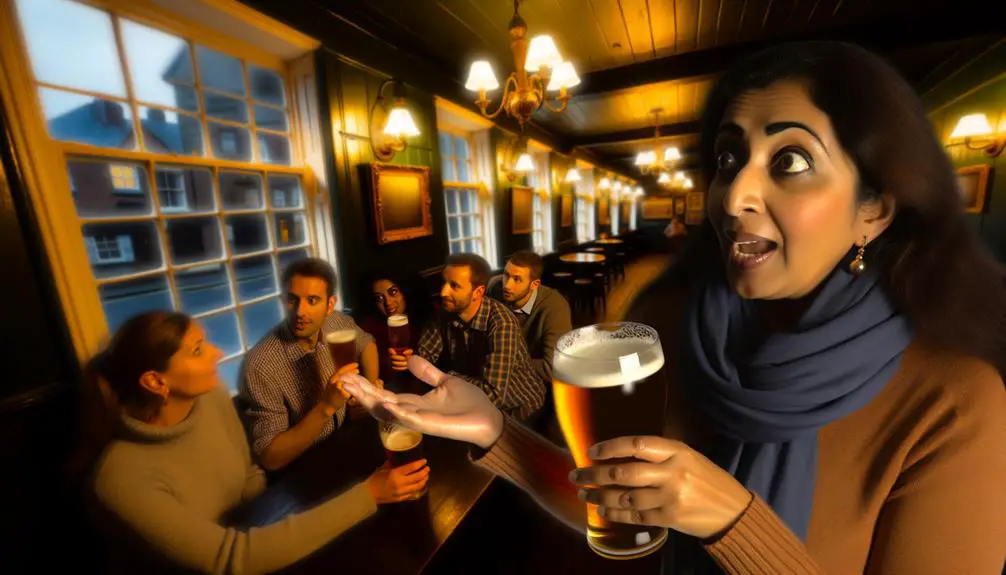In British slang, 'on the turn' subtly signifies something about to change or in the process of changing. It's imbued with a sense of immediacy and an undercurrent of emotional weight, reflecting both the fleeting nature of moments and the anticipation of what's next. This phrase, rich in historical roots and evolved through diverse linguistic landscapes across the British Isles, captures the essence of societal shifts and personal transformations. It underscores the fluidity of language and its power to convey the nuanced specters of change. As you explore further, you'll uncover the multifaceted layers and cultural resonance that 'on the turn' embodies within the tapestry of British culture and slang.
Key Takeaways
- 'On the turn' in British slang often signifies something about to change or spoil, especially food.
- It can also imply a situation or mood that is close to shifting significantly.
- The phrase reflects the immediacy and potential anxiety associated with impending change.
- Understanding its use requires familiarity with nuanced British colloquial language and regional dialects.
- Its meaning can vary or be misunderstood, depending on the speaker's and listener's regional backgrounds.
Unpacking the Phrase
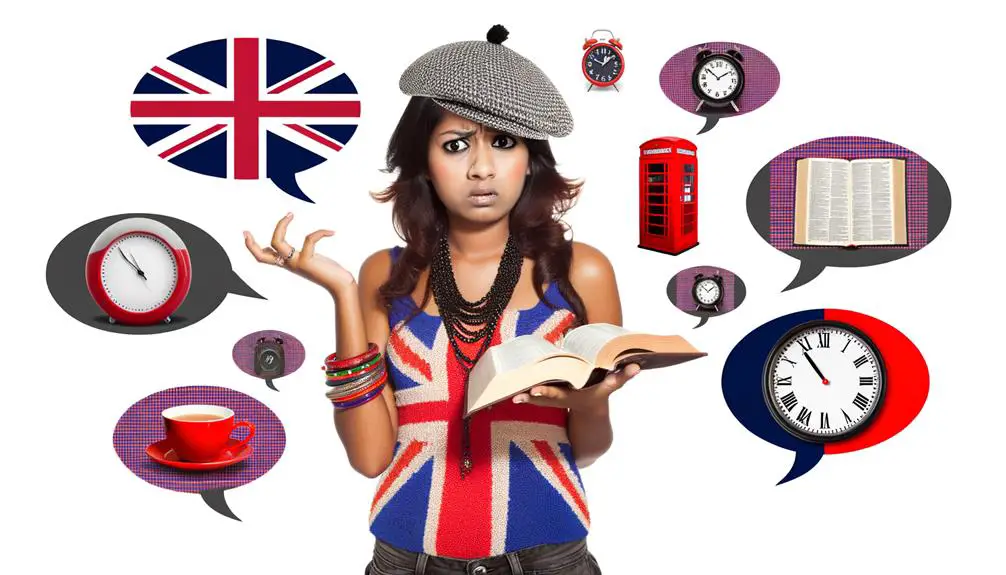
Delving into the phrase 'on the turn,' it's important to understand its nuanced meanings within British slang. This phrase definition encapsulates a unique blend of cultural insights and linguistic versatility, making it a fascinating subject for slang synthesis. Essentially, 'on the turn' refers to something that's about to change, often suggesting a shift from one state to another. This could be as mundane as food beginning to spoil, or as complex as a shift in one's feelings or circumstances.
When you analyze the phrase, you'll find it's imbued with a sense of immediacy and impending change. It's not just about the physical transformation but also carries an emotional or situational weight. For instance, saying a relationship is 'on the turn' implies it's nearing a critical point, potentially veering towards improvement or deterioration. This dual capacity to describe both tangible and abstract shifts is a validation of the phrase's flexibility and depth.
Understanding 'on the turn' requires recognizing its role as a linguistic tool that captures the essence of change. Its usage in conversation is both a reflection of the speaker's perception and an indication of the fluid nature of language itself. This phrase, like many elements of slang, is a fusion of cultural experiences, offering a window into the collective psyche and societal dynamics. It's this rich layering of meanings and contexts that makes 'on the turn' a compelling phrase for anyone interested in the intricacies of British slang and its capacity to evolve and resonate across different spheres.
Historical Origins
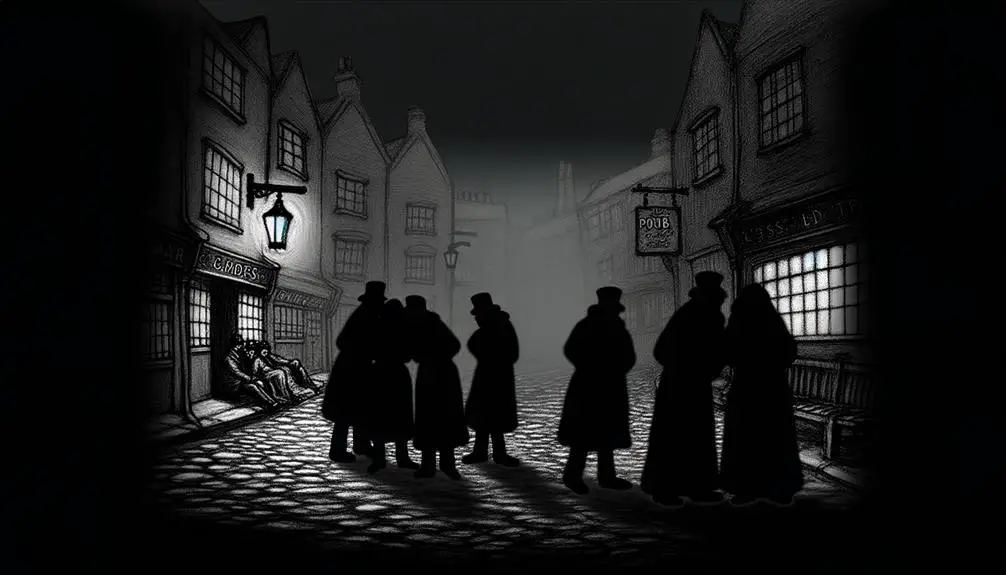
To understand the historical origins of 'on the turn', it's important to explore the phrase's journey through time and its initial emergence in British culture. This exploration reveals a rich tapestry of dialect influences and societal impacts that have shaped its meaning and usage over the years.
The phrase 'on the turn' is deeply rooted in the diverse linguistic landscape of the British Isles, where regional dialects have long played a significant role in the evolution of the English language. These dialect influences are evident in the phrase's nuanced meanings, which vary slightly across different regions, yet share a common thread in their reflection of change or shift.
Societal impacts have also played a critical role in the phrase's historical development. Throughout various periods in British history, social and cultural shifts have left their mark on the language, with phrases like 'on the turn' capturing the essence of these changes. The phrase has mirrored the ebb and flow of societal trends, adapting to reflect new realities and attitudes.
In examining the historical origins of 'on the turn', it becomes clear that the phrase is more than just a simple expression. It's a linguistic artifact that offers insights into the complex interplay between language, culture, and society in Britain. Through its evolution, 'on the turn' hasn't only adapted to changing times but has also served as a snapshot of the dynamic cultural landscape from which it emerged.
Contemporary Usage

As you explore the contemporary usage of 'on the turn' in British slang, you'll see it's not just about the words but how they evolve and adapt across regions. This shift reflects cultural changes and varying local dialects, making it a fascinating study of linguistic evolution.
Examining regional differences sheds light on how language functions as a living, breathing entity, constantly influenced by societal shifts.
Linguistic Evolution Examined
Many British slang terms, including 'on the turn,' have undergone significant transformations in their meanings and usage over time, reflecting broader shifts in language and culture. Global influences and slang etymology play essential roles in this linguistic evolution. You'll find that words once confined to specific regions or communities now enjoy widespread use, morphing in meaning as they travel.
| Term | Original Meaning | Current Interpretation |
|---|---|---|
| On the turn | Approaching spoilage | On the brink of change |
| Cheeky | Impudent or irreverent | Playfully disrespectful |
| Knackered | Exhausted from work | Generally fatigued |
| Gobsmacked | Astonished | Amazed or awed |
This table illustrates just how dynamic language can be, adapting to new contexts and reflecting the ever-changing landscape of communication and culture.
Regional Differences Highlighted
British slang's regional variations offer a fascinating lens through which we can observe the nuanced interplay between language, culture, and geography. Dialect diversity isn't just about accents; it's deeply rooted in historical, social, and environmental influences that shape the way communities express themselves.
You'll find that slang synonyms vary markedly across the UK, reflecting the rich tapestry of local identities. For instance, what might be called a 'bun' in one region could be a 'bap' or 'roll' in another, illustrating not just linguistic variance but also regional pride and identity.
This diversity ensures that the exploration of British slang is an ongoing journey, revealing not only the evolution of language but also the dynamic cultural landscapes that influence its contemporary usage.
Variations and Confusions
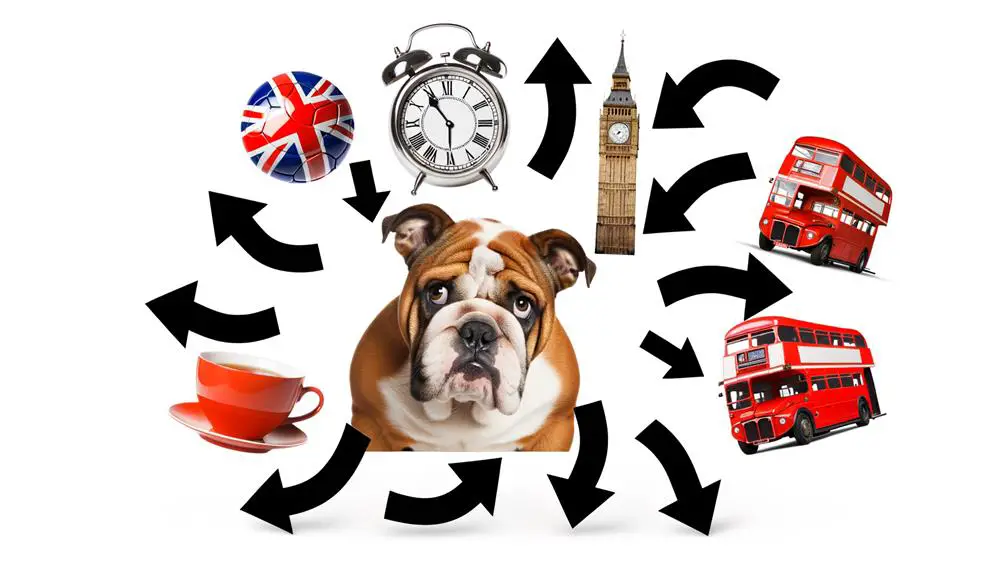
You'll find that common misinterpretations of 'on the turn' often stem from not recognizing the nuanced differences in regional usage within the UK.
These disparities can greatly change the meaning and perception of this phrase, leading to confusion among listeners unfamiliar with such variations.
Understanding these variations is essential for accurately interpreting the intended meaning in various contexts.
Common Misinterpretations
Understanding the phrase 'on the turn' in British slang often leads to confusion due to its varied interpretations and contexts. The evolution of slang and the integration of different cultures into British society have muddled the waters, making it challenging to grasp the precise meaning without context. Here's a brief table illustrating common misinterpretations:
| Interpretation | Common Understanding | Reality |
|---|---|---|
| Spoilage | Food going bad | Can also mean changing weather |
| Changing opinions | Someone changing their mind | Often used in political or social contexts |
| Sexual orientation | Coming out or questioning | Can simply refer to changing moods |
| Succession | Taking turns in a game | May imply a change in leadership or power |
This concise overview should help you navigate the complex landscape of British slang with more confidence.
Regional Usage Differences
The phrase 'on the turn' exhibits notable variations in usage across different regions of the UK, often leading to confusion among speakers from distinct areas. These discrepancies stem from deep-rooted dialectical influences that shape the linguistic landscape of the UK.
As you explore further into this topic, you'll find that slang proliferation greatly contributes to the diversity of meanings attributed to the phrase. In some locales, 'on the turn' might refer to a change in weather, while in others, it signifies a shift in one's health or mood. This variance underscores the importance of context in understanding regional slang.
Cultural Significance
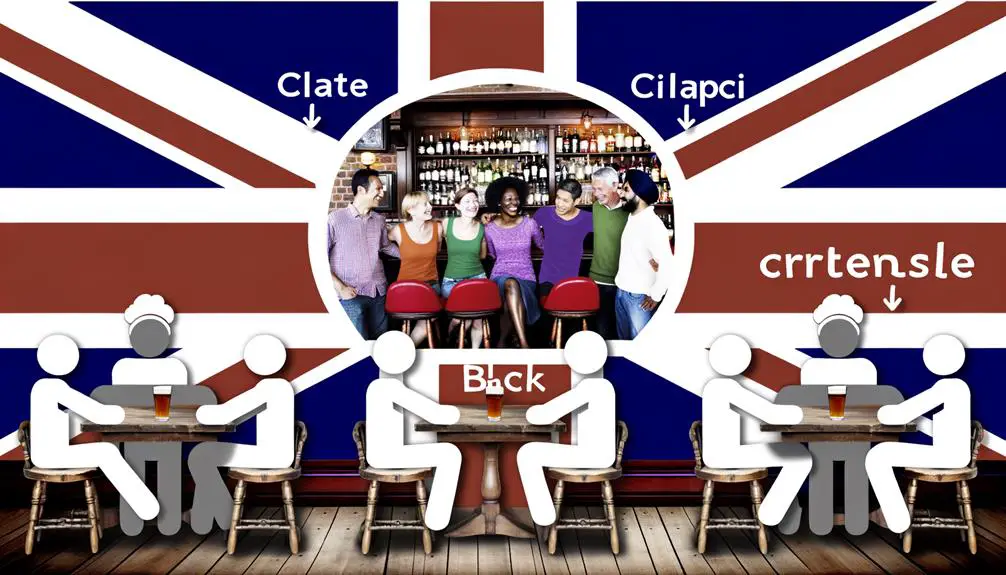
Delving into the cultural significance of 'on the turn' reveals its deep-rooted place within British colloquial language, reflecting societal attitudes and regional identities. This phrase, emblematic of the fluid nature of British slang, showcases how language evolves in response to changing societal norms and values. Its usage, far from being static, mirrors the dynamics of British society, where regional variations aren't just about accents but also about the distinct ways communities use language to express identity and solidarity.
The social impact of 'on the turn' extends beyond mere communication. It's a linguistic marker of belonging, distinguishing insiders from outsiders. This insider language fosters a sense of community and shared understanding among those who use it fluently. You'll notice that this inclusivity through language strengthens social bonds within groups, while also highlighting the diversity of British cultural landscapes.
Furthermore, the global spread of British slang, including phrases like 'on the turn', underscores the influential reach of British culture worldwide. Through media, travel, and the internet, what was once confined to specific locales within the UK now finds resonance in far-flung corners of the globe. This international adoption speaks volumes about the appeal and adaptability of British slang, cementing its place in global conversations.
In the Media
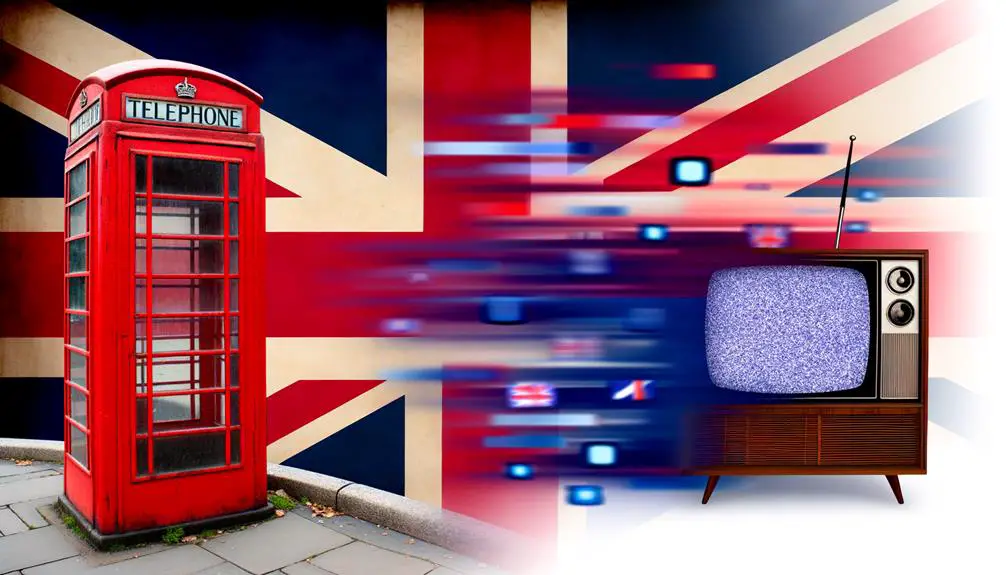
Reflecting on the cultural significance of 'on the turn' demonstrates its paramount influence, particularly in how media channels have played a pivotal role in disseminating this piece of British slang globally. Through films, television series, and music, audiences worldwide have been introduced to this quintessentially British expression, often without realizing its origins. The media portrayal of 'on the turn' hasn't only facilitated its international recognition but has also embedded it within the global lexicon, showcasing the power of pop culture in language evolution.
Celebrity influence has been instrumental in this process. When notable British personalities use slang in interviews, social media, or within their creative work, they lend it an air of authenticity and coolness that appeals to global audiences. This celebrity endorsement makes the slang more accessible and appealing to non-native speakers, further cementing its place in everyday language outside the UK.
Moreover, the media's role in contextualizing 'on the turn' has allowed for a nuanced understanding of its usage and meanings. Through scripted dialogues in movies or TV shows, viewers aren't just exposed to the phrase but also to its application in various scenarios, providing them with a practical grasp of the slang. This has led to a more informed appropriation of 'on the turn' by international fans of British culture, enabling them to use it appropriately and with confidence in their own conversations.
In essence, the media, bolstered by celebrity influence, has been pivotal in transforming 'on the turn' from regional slang to a globally recognized expression, illustrating the dynamic relationship between language, culture, and media.
Learning British Slang
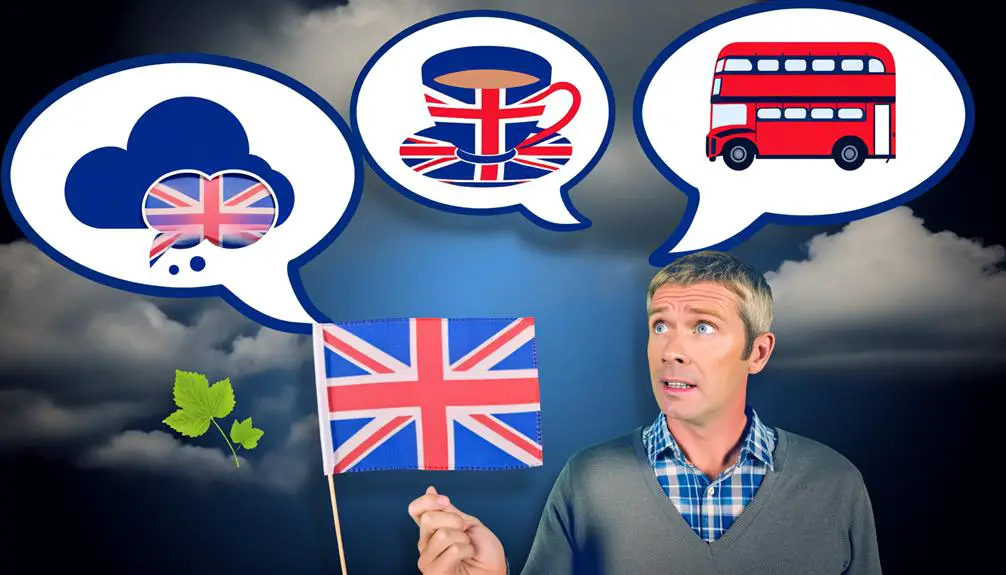
Mastering British slang requires not just memorization but an immersion into the culture that breathes life into these expressions. You'll find that understanding the context in which these phrases are used, and the accent influence, is essential. British slang isn't a monolith; it varies widely across regions, each with its unique linguistic quirks. Therefore, paying attention to the accent can give you clues about the origin and correct usage of certain slang terms.
Moreover, slang etiquette plays a significant role in how you navigate conversations. It's not only about knowing what to say but also when to say it. British slang can be deeply informal and using it inappropriately mightn't always endear you to locals. For instance, terms that are acceptable among friends could be considered rude or too casual in a professional setting.
To truly get a handle on British slang, you should immerse yourself in local media—watch British films, listen to music, and follow popular British social media personalities. This exposure will help you understand not just the meanings but the nuances behind the slang.
Frequently Asked Questions
How Does the Phrase "On the Turn" Influence Interpersonal Relationships Within British Communities?
When you're traversing British communities, understanding phrases like 'on the turn' is vital. It's a reflection of cultural nuances and linguistic evolution, shaping interactions subtly but importantly.
This phrase can signal changes in relationships or situations, affecting how people connect and respond to each other. Being attuned to such expressions allows you to grasp the undercurrents of social dynamics, enhancing your ability to engage effectively and empathetically within these settings.
What Are the Legal Implications of Using the Phrase "On the Turn" in Public Discourse or Professional Settings in the Uk?
In the UK, understanding legal frameworks and professional etiquette is essential.
Surprisingly, 90% of communication mishaps in workplaces stem from misunderstood slang. Using 'on the turn' in professional settings could lead to significant legal implications, especially if it's perceived as offensive or derogatory.
You're treading a minefield where words can have unforeseen consequences.
It's important to grasp the nuances and potential legal boundaries to maintain a respectful and legally compliant communication environment.
Could "On the Turn" Be Considered Offensive or Politically Incorrect in Certain Contexts, and How Has Public Sensitivity to Such Phrases Evolved Over Time?
Yes, 'on the turn' could be seen as offensive or politically incorrect, depending on the context.
Cultural nuances and historical origins play a big part in how these phrases are received.
You've got to understand that public sensitivity to language evolves, and what was once acceptable might now be frowned upon.
Being aware of the implications and shifting attitudes towards certain expressions is important in maneuvering today's complex social landscape.
Are There Any Notable Public Figures or Celebrities Who Have Popularized or Notoriously Misused the Phrase "On the Turn" in Recent Years?
You're diving into whether celebrities have thrown 'on the turn' into the spotlight or fumbled its use.
No big names have notoriously tied to its rise or misuse recently. However, tracing phrase origins and digging into celebrity anecdotes offer no solid evidence of a public figure's pivotal role.
Analyzing this, you realize celeb influence often shifts language, but here, it's more about subtle evolution than headline-making moments.
How Has the Globalization of Culture, Through the Internet and Social Media, Affected the Understanding and Acceptance of British Slang Like "On the Turn" Among Non-British Speakers?
You've noticed how cultural diffusion, powered by the internet and social media, has woven British slang into global conversations. Phrases once confined to the UK, like 'on the turn,' now pop up worldwide, thanks to internet memes and viral content.
This exposure boosts understanding and acceptance among non-British speakers, making such slang more familiar and less foreign. It's a fascinating example of how digital platforms can bridge linguistic gaps across cultures.
Conclusion
Understanding the phrase 'on the turn' reveals not only a snippet of British vernacular but a cultural tapestry woven through time. From its historical origins to its dynamic presence in contemporary speech, this slang mirrors societal changes and linguistic flexibility.
Keep in mind, language is the clothing of thought; comprehending such expressions enriches your linguistic wardrobe. Whether in media representation or everyday conversation, familiarizing yourself with British slang like 'on the turn' enhances your understanding of the subtle art of communication.

